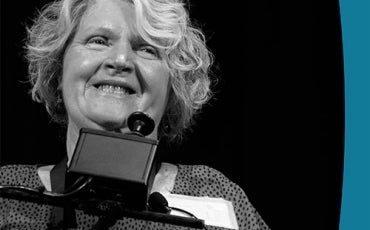Annual Report 2015-2016

President’s statement
This Annual Report sets out the performance of the Australian Human Rights Commission in the 2015–16 financial year.
This year has been both a challenging and rewarding one for the Commission.
We have achieved the highest conciliation rates of complaints under the four discrimination laws since our inception 30 years ago. Satisfaction rates with our conciliation service are also at a record high. It is particularly pleasing that the results reflect satisfaction from people in the midst of disputes – as both complainants and respondents.
We have released ground-breaking research on the prevalence and nature of discrimination in employment against older Australians and people with a disability. The Hon Susan Ryan AO released the final report of her national inquiry into these issues, titled Willing to Work, before finalising her term in early July 2016.
An important aspect of the Commission’s work is to develop public and private sector partnerships including with:
- the Australian Defence Forces – to embed cultural reform across the services, and to identify responses to historic abuse
- the university sector – to identify the prevalence of sexual harassment and sexual abuse within universities
- the business community – to implement the UN Global Principles on Business and Human Rights
- sporting organisations, business and community groups – through the Racism It Stops with Me campaign.
The Commission has continued to face significant reductions to its budget. Such reductions are hard for a small public sector agency to absorb, posing a risk to the ability of the Commission to meet its statutory obligations.
We have continued to focus advocacy on some contentious human rights issues, attracting political and media scrutiny. We have nonetheless seen the removal of almost all children from immigration detention in Australia. The contributions by the Commission to consideration by parliamentary committees of proposed laws have been consistently acknowledged as useful in pointing out the human rights implications.
During this financial year we have also said goodbye to three commissioners – Elizabeth Broderick after eight years as Sex Discrimination Commissioner; Susan Ryan AO after five years as Age Discrimination Commissioner and two years as Disability Discrimination Commissioner; and Tim Wilson after two years as Human Rights Commissioner. Each has made a significant contribution to the protection of human rights in Australia.
The Commission welcomes the appointment of four new commissioners since February 2016: Kate Jenkins, Kay Patterson, Alastair McEwin and Edward Santow. A fifth appointment is now due following the appointment of Mick Gooda, formerly Aboriginal and Torres Strait Islander Social Justice Commissioner, to his new role on the Royal Commission into the Protection and Detention of Children in the Northern Territory.
We enter the 2016–17 financial year with the knowledge that the newly elected Parliament will face many human rights challenges:
-
The proposition for constitutional recognition of Aboriginal and Torres Strait Islander peoples.
-
Racial harmony and community cohesion will be a key challenge.
-
A national plebiscite to amend the Marriage Act to recognise LGBTI relationships.
-
Laws to ensure Australia’s national security, while also not unduly encroaching on the rights of citizens.
-
Durable settlement of asylum seekers and refugees seeking our protection will continue be a focus of national debate, especially as evidence mounts of the mental and physical impact of mandatory immigration detention.
-
Efforts are being made to enable Australia to ratify the Optional Protocol to the Convention Against Torture (OPCAT) and to establish mechanisms to monitor all places of detention in Australia. The National Children’s Commissioner will report later in 2016 to identify the practical means of implementing OPCAT.
-
The reduction of socio-economic inequality experienced by Aboriginal and Torres Strait Islanders, and the continuing need for meaningful consultation with Indigenous communities.
-
Gender inequalities continue to be a national concern, most notably violence against women, the gender pay gap and limited engagement of women in leadership positions.
-
Participation of older Australians in the workforce is vital as our population ages.
- The evolving National Disability Insurance Scheme raises questions about how to support independent living and to ensure access to employment and housing.
The Commission stands ready and willing to assist the Federal Government by providing evidence-based, technical expertise on all aspects of human rights implementation in Australia. As we celebrate our 30th anniversary this year, there are both achievements to recognise and serious human rights challenges to meet.
Gillian Triggs
President



